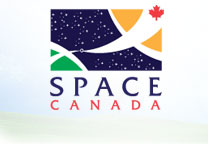   |
News Release
| Waterloo, Ontario – October 7, 2009 NEW REPORT EXAMINES SPACE SECURITY ISSUES A newly issued study provides a comprehensive source of data and analysis on space activities and their cumulative impact on the security of outer space. Space Security 2009 has been jointly released by Project Ploughshares and Secure World Foundation on behalf of the Space Security Index, an international research consortium. This is the sixth annual report on trends and developments in space, covering the period January to December 2008. Among a roster of findings, Space Security 2009 finds that the number of actors with access to space, including dual-use applications -- those with potential civilian and military uses -- has continued to grow in the past year. By 2008, nine actors had demonstrated independent orbital launch capacity and 49 states had launched civil satellites, either independently or in collaboration with others. The report notes that the deployment of military space systems, which continues to be led by the United States and Russia, has increased in other countries around the world as well. At the end of 2008 there were over 150 operational dedicated military satellites worldwide, with the U.S. operating approximately 76, and some 36 spacecraft operated by Russia. Invaluable resource “The Space Security Index has proven to be an invaluable resource for our discussions of space security and the long term sustainability of outer space in numerous forums. It is a unique source of information about civil, military, and commercial space activities. We support it because it makes a difference,” says Dr. Ray Williamson, Executive Director of Secure World Foundation. Space Security 2009 flags the evolving space-faring states, underscoring the indigenous space programs of Iran and North Korea. Iran attempted three rocket launches in 2008 in preparation for its first satellite launch, and North Korea continued to clandestinely pursue indigenous space launch capabilities. Despite conflicting accounts about the success of Iran’s rocket launches, the report points to concerns that Iran’s civilian space launch program may be a cover for its long-range ballistic missile program, which would use similar technology. Likewise, North Korea’s space program, historically shrouded in secrecy, appears to be moving forward. Commercial satellite imagery revealed in 2008 a previously unknown launch facility on North Korea’s west coast, signaling that it has continued to pursue a ballistic missile and space launch program. “The Space Security Index provides a wealth of factual information about key developments in outer space that can guide the work of researchers and policymakers alike,” says Cesar Jaramillo, Program Manager for the annually updated Space Security Index. “Though the study itself is policy-neutral, the underlying premise that informs its preparation is that space should be preserved peacefully for all humanity, as called for in the 1967 Outer Space Treaty.” While the potential for military applications in space raises concern “the issue of how best to secure sustainable access to and use of space has risen to the top of the global space policy agenda,” explains Dr. John Logsdon, Professor Emeritus of Political Science and International Relations at The George Washington University. Project partners include Project Ploughshares, Secure World Foundation, Institute of Air and Space Law at McGill University, Simons Centre for Disarmament and Non-Proliferation Research at the University of British Columbia, the Cypress Fund for Peace and Security, and the Space Generation Foundation. The project is supported by the Canadian Department of Foreign Affairs and International Trade, Secure World Foundation, the Ploughshares Fund, the Erin J.C Arsenault Trust Fund at McGill University and The Simons Foundation. Recent contributions by Telesat, Intelsat General Corporation, are gratefully acknowledged. Secure World Foundation (SWF) is headquartered in Superior, Colorado, with offices in Washington, D.C. and Vienna, Austria. SWF is a private operating foundation dedicated to the secure and sustainable use of space for the benefit of Earth and all its peoples. Founded in 1976 and based in Waterloo, Ontario, Project Ploughshares is a charitable organization that works with churches, governments, and civil society, in Canada and abroad, to advance policies and actions that prevent war and armed violence and build peace. For more information contact: Cesar Jaramillo, Program Manager, Project Ploughshares |
 PROJECT PLOUGHSHARES 57 Erb Street West Waterloo, Ontario, N2L 6C2 Project Ploughshares |
SPACE Canada - Solar Power Alternative for Clean EnergySPACE Canada Corporation is a non-profit organization dedicated to the promotion of international dialogue on space-based solar power. Its name derives from the organization’s mission: Solar Power Alternative Clean EnergyMore about Space Canada Privacy Policy |
 |
SPACE Canada - Solar Power Alternative for Clean Energy Website by We Think Solutions Inc. |
|